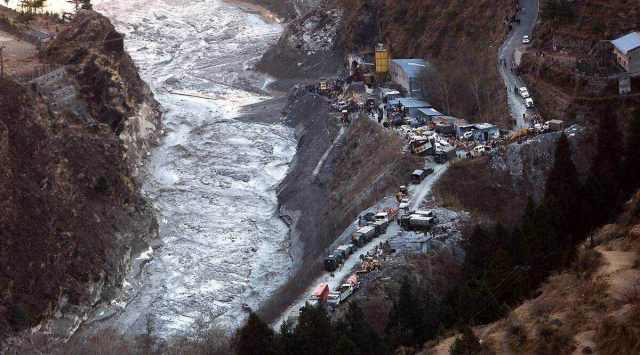The crux of Tuesday’s Supreme Court judgment that modified its September 2020 order on the optimal width for hill highways is its refusal to question the defence policies of an elected government. In doing so, the apex court sought what it called a “delicate balance” between environmental considerations and security needs, while leaving open the possibility for wider roads on non-strategic segments of the Chardham project as well.
Dismissing the argument based on the minority report of its own High Powered Committee (HPC) that a disaster-resilient, intermediate road width was much more critical than a wider road “prone to frequent blockages, landslides and recurring slope failures” for the country’s defence needs, the apex court said that its judicial review could not “second-guess the infrastructural needs” of the armed forces.

“The submission of the appellants requires the Court to interrogate the policy choice of the establishment which is entrusted by law with the defence of the nation. This is impermissible,” the judgment held.
On that emphatic ground, the Supreme Court modified its September 2020 order while noting that the Chardham project “is riddled with environmental issues” and making the approval for wider roads conditional on implementing all the recommendations made by the HPC it appointed in August 2019.
While Tuesday’s judgment modified the road width only in the strategic segments, it granted liberty to the government “to pursue appropriate legal proceedings and seek reliefs in the event that it is necessary to implement” uniformly wider roads for the entire Project.
It was HPC’s minority recommendation based on a March 2018 guideline issued by the Ministry of Road Transport and Highways (MoRTH) for mountain highways that made the court restrict the road width under the Chardham project to 5.5m carriageway (with 1.5m raised footpath) in September 2020. In November, the MoD joined the case, seeking relief to widen the strategic feeder roads to 7m carriageway (with 2×1.5m paved shoulders and 2x1m earthen shoulders).
On strategic security needs, Tuesday’s judgment underlined that “balancing the interests of defence as against environmental considerations was outside the ambit of the HPC” which “was not competent to address, assess or review the security needs of the nation”.
Story continues below this ad
Within the HPC’s mandate, though, the judgment highlighted the panel’s unanimous recommendations in considerable detail, holding that the remedial measures adopted so far “have only begun to scratch the surface”.
In that spirit, the judgment observed: “Making the project environmentally compliant should not be seen (as) a ‘checkbox’ to be obtained on the path to development, but rather as the path to sustained development itself. Thus, the measures adopted have to be well thought out and should actually address the specific concerns… Understandably, this may make the Project costlier, but that cannot be a valid justification to not operate within the framework of the environmental rule of law and sustainable development.”
More specifically, the judgment went on to note that “in many instances, MoRTH has gone ahead with the Project based on its assertions that the Project is compatible with environmental guidelines or that its developmental benefits are proportionate to the harm” and that “the State has tried to justify the efficacy of its current measures solely by noting their benefits directly to the Armed Forces” which “is not the only thing at stake in a Project of this scale”.
However, since “the considerations governing the construction of highways that are strategic roads from a defence perspective and may be used by the Armed Forces of the nation, cannot be the same as those for other” hill roads, the judgment sought to “arrive at a delicate balance of environmental considerations such that they do not impede infrastructural development, specifically in areas of strategic importance crucial to the security of the nation”.
Story continues below this ad
To achieve that balance, the apex court made the approval for wider roads conditional on implementing all recommendations of the HPC on critical issues such as muck dumping, hill cutting, backfilling, stabilisation, drainage, disaster management etc.
However, the judgement also constituted an Oversight Committee under retired Justice AK Sikri to assess the implementation of these recommendations along the 674-km feeder roads.
The HPC would anyway “continue with its work on overseeing the implementation of its recommendations” but now on the non-strategic roads under the Chardham project.
For the record, the HPC was set up in August 2019 to replace an Oversight Committee when the Supreme Court modified an order of the National Green Tribunal that directed the constitution of that oversight panel under a former judge of the Uttarakhand High Court.
Story continues below this ad
In that sense, monitoring of environment compliance has come full circle in this case.









